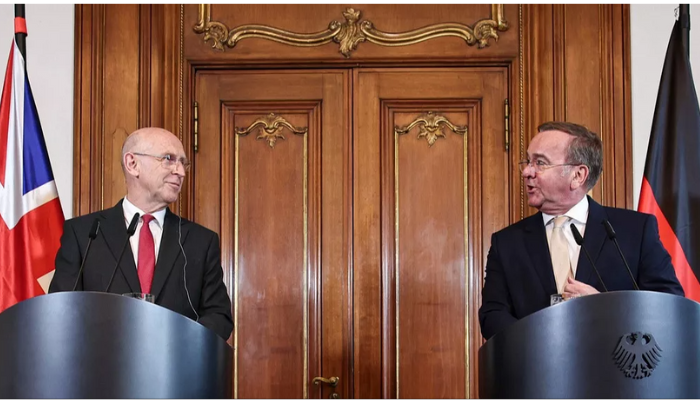Germany and the United Kingdom reaffirmed their unified stance on bolstering Ukraine’s defense efforts during a high-level ministerial meeting in Berlin. The bilateral talks marked the first such defense council since the two nations signed a military cooperation pact in 2024.
German Defence Minister Boris Pistorius hosted his UK counterpart John Healey for the inaugural session, emphasizing joint military initiatives and faster project implementation. “Our partnership isn’t just about agreements—it’s about swift, joint execution,” said Pistorius during a joint press conference.
EU Plans to Double Ammunition Deliveries to Ukraine
Simultaneously, European Union Military Committee Chairman Robert Brieger announced the EU’s goal to deliver two million rounds of heavy-calibre ammunition to Ukraine by the end of 2025—double the amount sent last year.
Speaking in Brussels after a meeting of EU defence chiefs, Brieger said the plan includes incentivizing member states to increase production under European Defence Agency contracts, while also exploring collaboration with Ukraine’s defence industry.
“We are actively supporting member nations to procure and produce more,” said Brieger. “New initiatives—both financial and industrial—are underway to meet this urgent need.”
NATO Talks, US Strategy, and Russia’s Rejection
These developments come amid a broader NATO dialogue in Turkey, where member nations are evaluating a new US proposal to significantly boost collective defence spending. The US is reportedly recalibrating its security priorities beyond Europe.
Meanwhile, diplomatic tensions flared as Russian President Vladimir Putin declined Ukrainian President Volodymyr Zelenskyy’s call for direct peace talks in Istanbul. UK Defence Minister Healey condemned Putin’s absence: “He says he wants peace but rejects a ceasefire. He talks of dialogue, but skips his own conference.”
Maritime Security Also Under Scrutiny
Brieger also addressed concerns about maritime threats from Russia’s so-called shadow fleet. He stressed the need for increased naval resources to safeguard EU waters. “We are stretched thin,” Brieger admitted, referencing EU missions in the Indian Ocean and Mediterranean. “Future missions must ensure we have enough ships, aircraft, and personnel to deliver credible security.”

